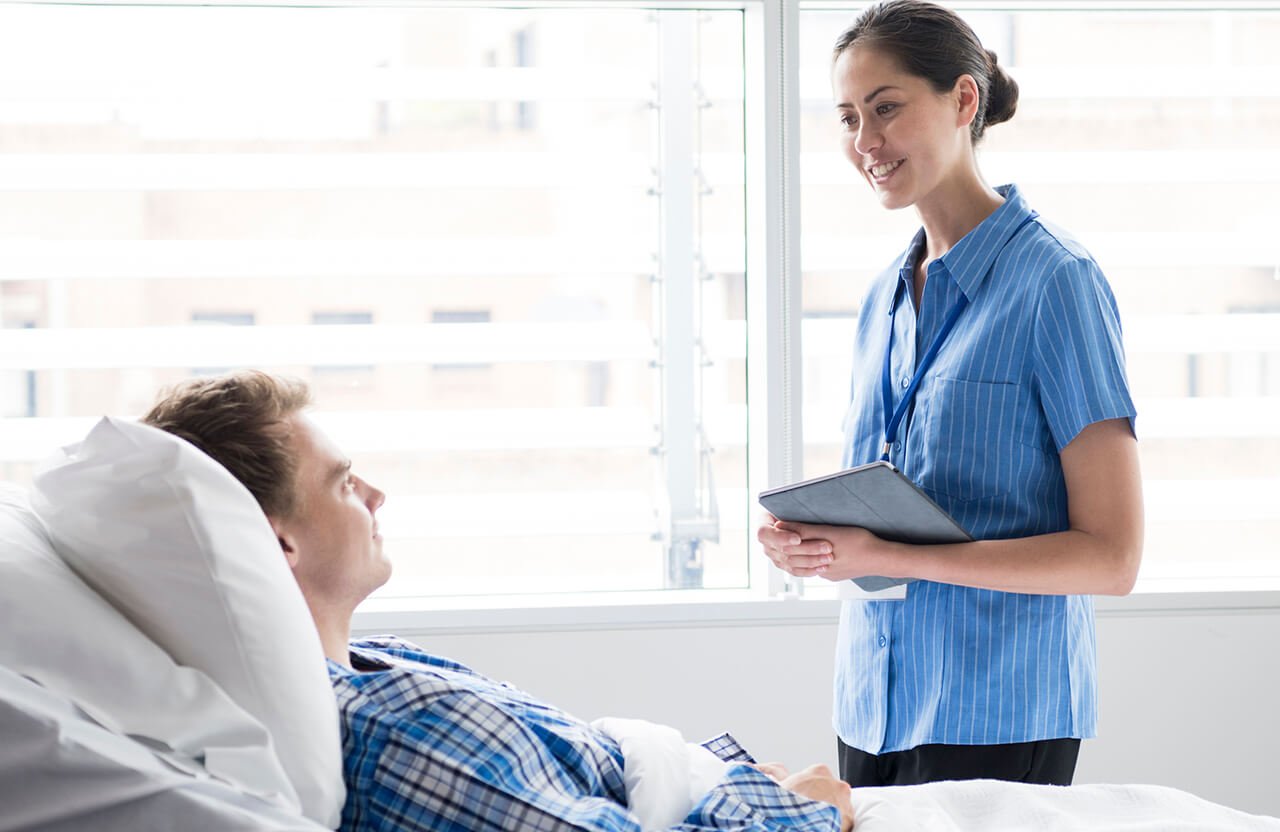How Coaching and Technology Create Rounding Success
Is your team afraid to log not met domains and coaching notes? Do they often communicate that they don’t want to ‘tattle’? OR, are they completely...
3 min read
Lauren Walling : May 5, 2019

Salary.com conducted a recent survey, compiling a list of the top 10 most stressful jobs. Nursing ranked #6. Surprising to some, but not to those that have made it a career to care for others. Nurses are the glue that holds everything together. Doctors rely on them to carry out orders and provide updates on patient status. Patients need them to provide the care necessary to make them healthy. Nurses go the extra mile to accommodate both groups and never say “that’s not my job.”
Nurse Appreciation Week (May 6th-12th), is all about celebrating them and the countless ways they serve and care take on a daily basis. So take a moment to stop and think, what do our nurses need the most? Forget the snacks and thank you cards. For a profession that ranked 6th in the top 10 most stressful jobs list, the gift that will best serve them is a stress-free mind. How do you do that? It is easier than you think thanks to a practice called Mindfulness.

Your mind is a machine reflecting on the past, processing the present, and anticipating the future. So what is mindfulness you ask? According to Jon Kabat-Zinn, founder of Mindfulness-Based Stress Reduction, Mindfulness is an awareness that arises through paying attention, on purpose, in the present moment, non-judgmentally.1 We all want to be in the moment … but how realistic is it when faced with the stressful pace of nursing? With our minds in constant motion, how do we accomplish this?
There are subtle exercises you can do to help reconnect to the present moment and practice mindfulness. An easy, but a beneficial start is being aware of your breathing. Throughout the day, take a quick pause and ask yourself, “how is my breathing right now, is it faster than it needs to be?” Just examining your breath pattern will slow your breathing down and help you take a mindful pause. You can even set yourself a reminder on your phone or smartwatch, “don’t forget to breathe and take into the moment.” You will be surprised how this can help you have a grounded moment.
Next, take a look at your day. Are you having stressful thoughts? Is there something that you are worried about? Give yourself a positive mantra to repeat to yourself a few times throughout the day. You will be amazed at how a simple positive saying can change your outlook.
Try it! We promise the results will be worth it. In fact, you will soon learn that you can’t afford to not integrate mindfulness throughout your day!
Download our eBook: The New Rules of Nurse Leader Rounding!
Those who practice mindfulness are seeing both job and health benefits as a result. According to American Nurse Today, mindfulness is contributing to how “greater awareness and less distraction in the clinical setting can improve your assessment skills (for instance, allowing you to identify subtle changes in a patient’s condition) and your performance of complex technical procedures that may reduce the risk of clinical errors.”2 Communication is enhanced “with patients and other healthcare team members by bringing greater awareness of how and what others are communicating. Listening and speaking with greater attention can lead to more effective communication and better clinical outcomes, particularly in crisis situations.”2
Mindfulness has been shown to have health benefits beyond a clearer head. American Nurse Today also reported that “in clinical populations, evidence suggests mindfulness-based interventions (MBIs) can reduce symptoms linked to various conditions, including cardiovascular disease, cancer, and depression. Among healthcare professionals, mindfulness training can reduce psychological and physiologic stress, emotional distress, and burnout while improving empathy, job satisfaction, and sense of well-being.”2 We all know that stress can take a toll on your health. “Research shows mindfulness training can help nurses cope more effectively with stress and reduce the risk of professional burnout.”2
Our solution was created by nurses for nurses. Our intentional design requires very little data entry or screen reading which contributes to the mindful art of being present in the moment. There are prompts to focus on patients likes and dislikes and allows you to familiarize yourself with the patient on a human-like level. Smart Icons can even prompt you to be mindful during your interactions with the patient. Technology and Mindfulness do not need to be enemies. They can, in fact, play nicely together.
At Clarifire, we appreciate all the nurses who give patients the care that they need to get back on the road to health and wellness. Happy Nurse Appreciation Week!
Lauren Walling
Lauren Walling is a graduate of Emory University with a degree in Industrial Psychology, as well as an MBA from the John Sykes School of Business from The University of Tampa. She is a member of the Healthcare Business Women's Association, National Association of Professional Women, and the Morton Plant Corporate Membership and Planters Society. Lauren works with large Healthcare Systems implementing Patient Experience and Outcome Solutions that streamline processes, increase patient experience and improve quality and safety.
References:
[1] https://www.mindful.org/jon-kabat-zinn-defining-mindfulness/
[2] https://www.americannursetoday.com/mindful-nurse/

Is your team afraid to log not met domains and coaching notes? Do they often communicate that they don’t want to ‘tattle’? OR, are they completely...

As a Patient Experience Manager, CNO, or Nurse Executive, you understand the importance and effectiveness of Nurse Leader Rounding. Are you having...

Despite ongoing government initiatives for policy and regulation, the healthcare industry continues to grow exponentially. Hospitals must be nimble,...